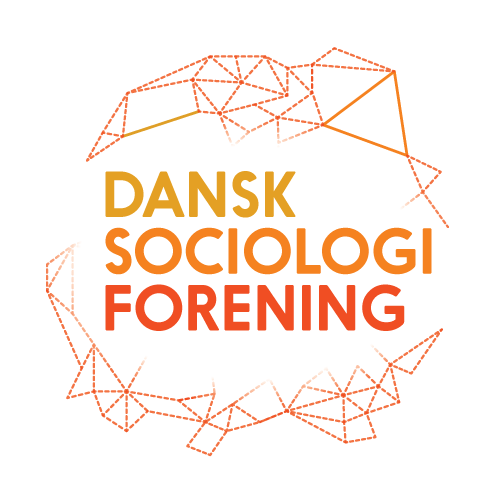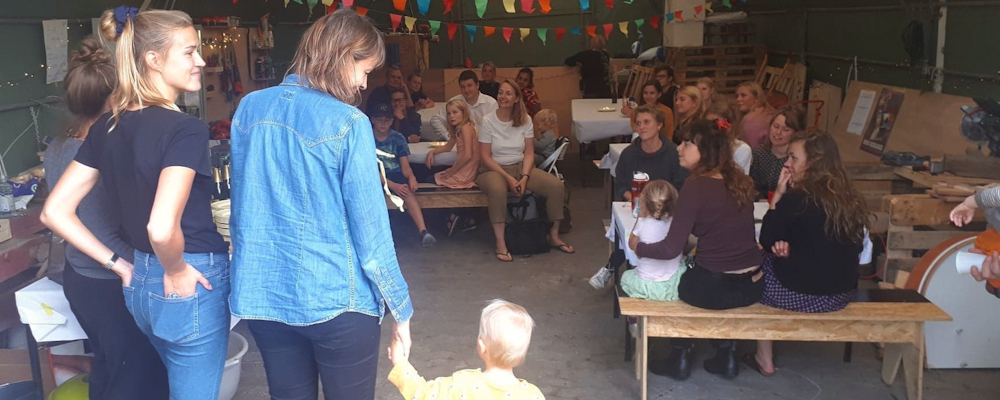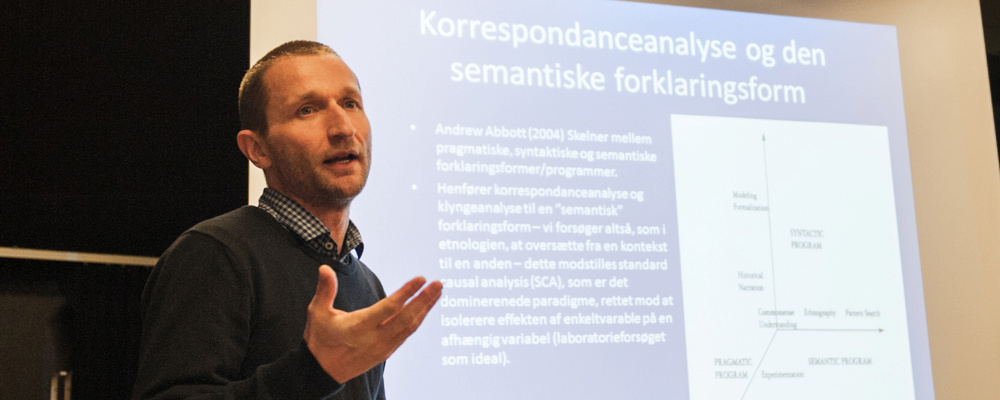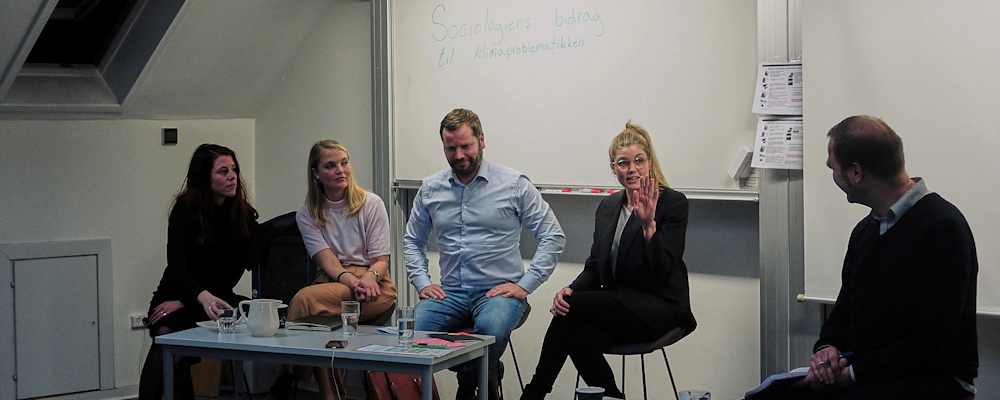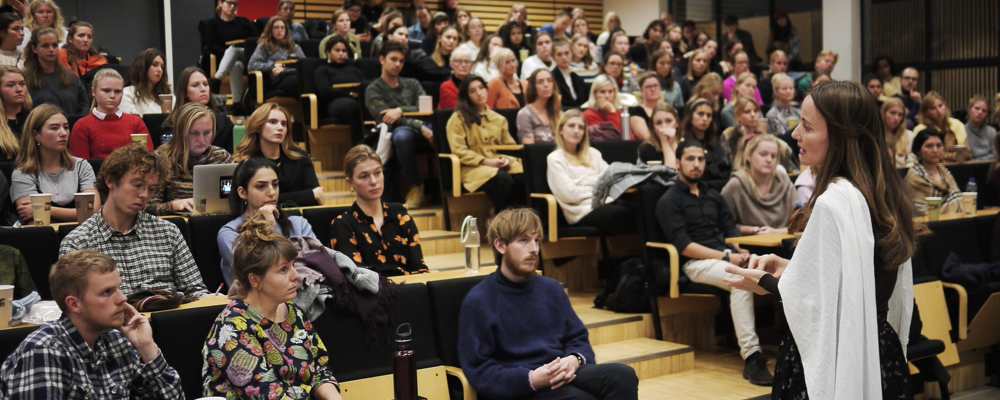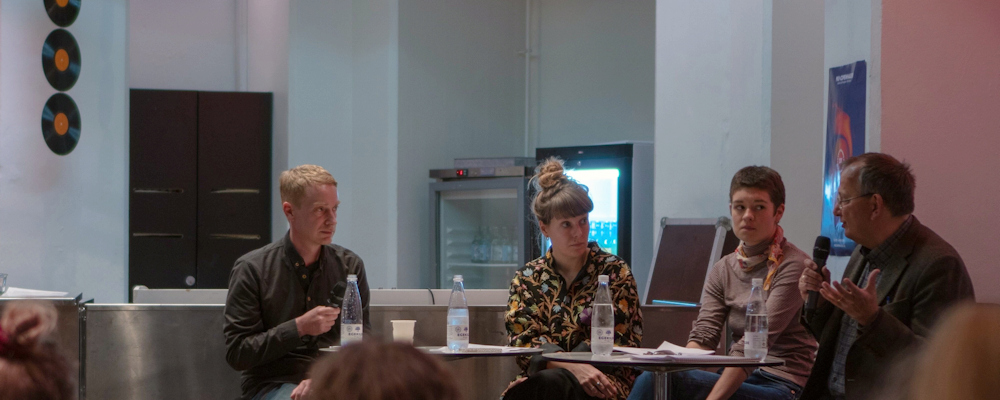Sommerhøjskole i 2015
Næste år i 2015 har Sociologforeningen 50 års jubilæum. I den anledning arbejder et udvalg under bestyrelsen på at lave en sociologisk sommerhøjskole. Sommerhøjskolen henvender sig til alle med interesse for sociologi. Projektet er stadig i opstartsfasen, og hvis nogen har lyst til at bidrage med ideer til indhold eller til organisatorisk know-how, er de mere end velkomne til at henvende sig til os på [ asta.breinholt.lund@gmail.com ]asta.breinholt.lund@gmail.com
****************
Invitation: Tidsskriftet Dansk Sociologi fylder 25 år
I den anledning er Sociologisk Institut ved Københavns Universitet vært for en festlig eftermiddag torsdag den 30. oktober 2014 med en paneldebat om sociologiens position og rolle i samfundet under titlen:
Forskning i verdensklasse, samfundets vagthund, bureaukraternes forlængede arm?
Debat om dansk sociologi i dag og fremover.
Panelister: Gösta Esping-Andersen, professor, Universitat Pompeu Fabra, Barcelona
Christian Borch, professor, CBS
Peter Gundelach, professor, Københavns Universitet
Martin Munk, professor, Aalborg Universitet
Bente Halkier, professor, RUC
Vi lægger op til en livlig debat med kritiske indspark fra panelet og efterfølgende debat fra salen. Efterfølgende bydes der på drinks og snacks.
Programmet for dagen er som følger:
15.15-15.30: Velkomst v/ institutleder Janus Hansen
15.30-17.00: Paneldebat
17.00-19.00: Reception
Arrangementet foregår i Christian Hansen Auditoriet på CSS, Center for Sundhed og Samfund, Øster Farimagsgade 5, 1014 København K, bygning 34. Lokalet kan ses her: csc.ku.dk/bygninger_og_adresser/css/
Gå ind på kortet (3. linie under billedet), bygning 34 er ved indgang “O”.
Arrangementet er åbent for alle interesserede og kræver ikke tilmelding.
Dansk Sociologis jubilæumsnummer (3/2014) udkommer umiddelbart op til arrangementet og rummer bl.a. et antal indlæg i relation til debatten. Det vil være muligt at købe tidsskriftet på dagen.
Vi glæder os til en festlig dag!
Redaktionen bag Dansk Sociologi
*****************
Efterårets foredrag i Dansk Sociologforening:
Moderniteten som permanent liminalitet?
ved Bjørn Thomassen
På baggrund af den netop udgivne bog, Liminality and the Modern. Living Through the In-Between, vil Bjørn Thomassen diskutere, hvilken rolle ’liminalitet’ måtte have for samfundsvidenskaberne og den sociologiske tænkning.
Liminalitet – et begreb, oprindelig udviklet inden for antropologien – betegner de historiske øjeblikke, hvor den sociale orden, der normalt tages for givet, pludselig forsvinder. Begrebet om ”liminalitet” er relevant for studiet af revolution, men også for en mere generel begrebsliggørelse af forandring og samfundstransformation. På et metateoretisk plan kan man derfor diagnosticere modernitetens væsen som en særlig form for ”permanent liminalitet”.
Om Bjørn Thomassen:
Bjørn Thomassen is associate professor at the Department of Society and Globalisation (Global Studies and ‘Samfundsvidenskab’). Bjørn works broadly across the social and political sciences. Research areas and interests include urban studies, cultural and political dimensions of globalisation, nationalism, identity & memory politics. He is generally interested in anthropological approaches to political and social change, including the study of political revolutions. Regions of specialization: Italy, Southern Europe, the Mediterranean area, Europe.
Flere detaljer kan ses på vor hj.side.
Tid: Onsdag d. 8. oktober 2014, 17-19.
Sted: Center for Sundhed og Samfund, Øster Farimagsgade 5,1014 København K, lokale 2.0.63
På dette link ses adressen og lokalet, som er i bygning 2.
csc.ku.dk/bygninger_og_adresser/css/
Gå ind på kortet (3. linie under billedet), bygning 2 er ved indgang “D”. Gå til højre i porten og ind til lokale 63, som ligger i stuen.
Foredraget er gratis og alle er velkomne! Efterfølgende byder vi på vand, øl og snacks.
********************
Miljøsociologi – mere end blot en bindestreg
ved Lars Kjerulf Petersen og Charlotte Jensen
Miljøsociologi er og må være en central del af den sociologiske tænkning. Det er der to grunde til. For det første tager miljøsociologien det nødvendige skridt at inkludere materialiteten som en central komponent i sociale og samfundsmæssige strukturer og dynamikker – hvor sociologien i øvrigt har haft en kedelig tilbøjelighed til at ignorere fysiske, biologiske og materielle forhold. For det andet er klimaforandringer, miljøødelæggelser og omstilling til bæredygtige samfund en voldsom udfordring, aktuelt og i en de næste mange årtier, på alle niveauer af samfundslivet. Det er ikke blot en teknisk udfordring, men en netop social, kulturel og samfundsmæssig udfordring, som sociologien skal være med til at forstå og bidrage til at løfte. I aftenens oplæg vil de to oplægsholdere ud fra egen forskning tale om nogle af de centrale teoretiske og empiriske temaer i miljøsociologien.
Biografier:
Lars Kjerulf Petersen er mag.art. i kultursociologi og ph.d. i sociologi fra Københavns Universitet. Han har siden 2004 arbejdet som seniorforsker i miljøsociologi på Danmarks Miljøundersøgelser der siden er blevet til Institut for Miljøvidenskab ved Aarhus Universitet (i Roskilde). Lars beskæftiger sig især med (1) husholdning og hverdagspraksis i forhold til affald og energi, (2) miljø, medier og offentlighed, (3) brug og opfattelser af natur og grønne områder, og (4) omstilling til bæredygtige samfund.
Charlotte Louise Jensen er cand.polyt. i Innovation og Miljøledelse fra Danmarks Tekniske Universitet, og ph.d i socio-teknisk forskning fra Aalborg Universitet. Hun har siden foråret 2014 arbejdet som post-doc, også ved Aalborg Universitet, men med mange aktiviteter i udlandet, såsom et visiting fellowship ved Anglia Ruskin University i Cambridge, UK. Charlotte beskæftiger sig med socio-tekniske aspekter ved belysning, og kigger på hvordan belysningsmønstre udfolder sig pga de sociale praksisser som lys indgår i og er en del af. Hun interesserer sig for hverdags- såvel som professionelle praksisser igennem hvilke lys forstås, udfoldes og forhandles, og hvad disses praksissers sammenspil har af betydning for bæredygtig omstilling.
Tid: Tirsdag den 11. november 2014, 17-19.
Sted: Lokale 2.0.63. Se ovenfor for detaljer om lokalet.
Foredraget er gratis og alle er velkomne! Efterfølgende byder vi på vand, øl og snacks.
********************
Big data
ved Anders Blok og Tobias Bornakke:
Beskrivelse kommer senere.
Tid: Tirsdag den 2. december 2014, 17-19.
Sted: Lokale 2.0.63. Se ovenfor for detaljer.
Foredraget er gratis og alle er velkomne! Efterfølgende byder vi på vand, øl og snacks.
****************
